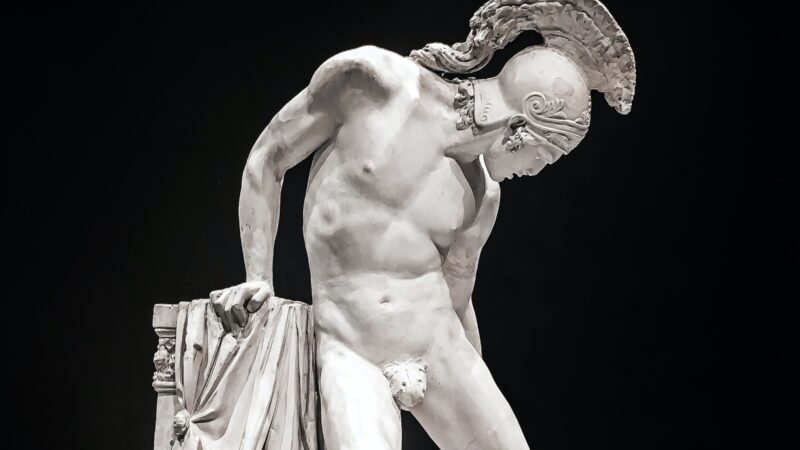Orwell’s Egalitarian Problem
George Orwell’s Nineteen Eighty-Four is a book whose influence exceeds its readership. It resembles a Rorschach test; moulding itself to the political prejudices of whoever reads it. It also has a depth which often goes unnoticed by those fond of quoting it.
The problem isn’t that people cite Orwell, but that people cite Orwell in a facile and cliched manner. The society of Oceania which Orwell creates isn’t exemplified in any contemporary state, save perhaps wretched dictatorships like North Korea or Uzbekistan. It’s thus not my intent to draw on Nineteen Eighty-Four to indict my own society as being “Orwellian” in the sense of being a police state, a procurer of terror, or engaged in centralised fabrication of history. A world of complete totalitarianism of the Hitlerian or Stalinist kind hasn’t arrived (not yet at least), but Nineteen Eighty-Four still has insights applicable to our day.
In Nineteen Eighty-Four, the protagonist, Winston, is suffocated by the miserable tyranny he lives in. The English Socialist Party (INGSOC) controls all aspects of Britain, now called Airstrip One, a province of the state of Oceania. It does so in the name of their personified yet never seen dictator, Big Brother. When Winston is almost at breaking point, he meets fellow party member, O’Brien. O’Brien, Winston thinks, is secretly a member of the resistance, a group opposing Big Brother. O’Brien hands Winston a book called The Theory and Practice of Oligarchical Collectivism. This book is supposedly written by Emmanuel Goldstein, arch-nemesis of Big Brother, and details the secret history and workings of Oceanian society, something unknown to all its citizens.
Oligarchic collectivism is the book’s term for the ideology of the Party in response to a repeating historical situation. Previous societies were characterised by constant strife between three social classes: the top, the middle, and the bottom. The pattern of revolution across history was always the middle enlisting the bottom by pandering to their base grievances. The middle would use the bottom to overthrow the top, install itself as the new top, and push the bottom back down to their previous place. A new middle would form over time, and the process would repeat.
INGSOC overthrew the top through a revolution, in the name of equality. What it actually achieved was collectivised ownership at the top, and so it created a communism of the few, not unlike classical Sparta. The rest of the population, derogatorily called “proles”, live in squalid poverty and are despised as animals. They’re kept from rebelling by being maintained in ignorance and given cheap hedonistic entertainment at the Party’s expense. INGSOC nominally rules on their behalf, but in reality is built upon their continual oppression. As Goldstein’s book puts it:
“All past oligarchies have fallen from power either because they ossified or because they grew soft. Either they became stupid and arrogant, failed to adjust themselves to changing circumstances, and were overthrown; or they became liberal and cowardly, made concessions when they should have used force, and once again were overthrown. They fell, that is to say, either through consciousness or through unconsciousness.”
In other words, the top falls either by failing to notice reality and being overthrown once reality crashes against it, or by noticing reality, trying to create a compromise solution, and being overthrown by the middle once they reveal their weakness. INGSOC, however, lasts indefinitely because it has discovered something previous oligarchies didn’t know:
“It is the achievement of the Party to have produced a system of thought in which both conditions can exist simultaneously. And upon no other intellectual basis could the dominion of the Party be made permanent. If one is to rule, and to continue ruling, one must be able to dislocate the sense of reality. For the secret of rulership is to combine a belief in one’s own infallibility with the Power to learn from past mistakes.”
INGSOC can simultaneously view itself as perfect, and effectively critique itself to respond to changing circumstances. It can do this, we are immediately told, through the principle of doublethink: holding two contradictory thoughts at once and believing them both:
“In our society, those who have the best knowledge of what is happening are also those who are furthest from seeing the world as it is. In general, the greater the understanding, the greater the delusion; the more intelligent, the less sane.”
It’s through this mechanism that the Party remains indefinitely in power. It has frozen history because it can notice gaps between its own ideology and reality, yet simultaneously deny to itself that these gaps exist. It can thus move to plug holes while retaining absolute confidence in itself.
At the end of Nineteen Eighty-Four, the Inner Party member O’Brien tortures Winston, and reveals to him the Party’s true vision of itself:
“We know that no one ever seizes power with the intention of relinquishing it. Power is not a means, it is an end. One does not establish a dictatorship in order to safeguard a revolution; one makes the revolution in order to establish the dictatorship. The object of persecution is persecution. The object of torture is torture. The object of power is power. Now do you begin to understand me?”
It’s here where I part ways with Orwell. For a moment, O’Brien has revealed to Winston one-half of what Inner Party members think. Doublethink is the simultaneous belief in the Party’s ideology, English Socialism, and in the reality of power for its own sake. INGSOC is simultaneously socialist and despises socialism. Returning to Goldstein’s book:
“Thus, the Party rejects and vilifies every principle for which the Socialist movement originally stood, and it chooses to do this in the name of Socialism. It preaches a contempt for the working class unexampled for centuries past, and it dresses its members in a uniform which was at one time peculiar to manual workers and was adopted for that reason.”
Orwell creates this situation because, as a democratic socialist, he’s committed to the idea of modern progress. The ideal of equality of outcome isn’t bad, but only the betrayal of this ideal. Orwell critiques the totalitarian direction that the socialist Soviet Union took, but he doesn’t connect this to egalitarian principles themselves (the wish to entirely level society). He therefore doesn’t realise that egalitarianism, when it reaches power, is itself a form of doublethink.
To see how this can be we must introduce an idea alien to Orwell and to egalitarianism but standard in pre-modern political philosophy: whichever way you shake society, a group will always end up at the top of the pile. Nature produces humans each with different skills and varying degrees of intelligence. In each field, be it farming, trade or politics, some individuals will rise, and others won’t.
The French traditionalist-conservative philosopher Joseph de Maistre sums up the thought nicely in his work Etude sur La Souveraineté: “No human association can exist without domination of some kind”. Furthermore, “In all times and all places the aristocracy commands. Whatever form one gives to governments, birth and riches always place themselves in first rank”.
For de Maistre the hard truth is, “pure democracy does not exist”. Indeed, it’s under egalitarian conditions that an elite can exercise its power the most ruthlessly. For where a constitution makes all citizens equal, there won’t be any provision for controlling the ruling group (since its existence isn’t admitted). Thus, Rome’s patricians were at their most predatory against the common people during the Republic, while the later patricians were restrained by the emperors, such that their oppression had a more limited, localised effect.
If we assume this, then the elite of any society that believes in equality of outcome must become delusional. They must think, despite their greater wealth, intelligence and authority, that they’re no different to any other citizen. Any evidence that humans are still pooling in the same hierarchical groups as before must be denied or rationalised away.
This leads us back to the situation sketched in Goldstein’s book. What prevents the Party from being overthrown is doublethink. The fact it can remain utterly confident in its own power, and still be self-critical enough to adapt to circumstances. In Nineteen Eighty-Four, the former is exemplified in the vague utopian ideology of INGSOC, while the latter is the cynical belief in power for its own sake and willingness to do anything to retain it. But against this, no cynical Machiavellianism is necessary to form one-half of doublethink. A utopian egalitarian with privilege is doublethink by default. At once, he believes in the infallibility of his ideology (he must if he’s to remain in it), and is aware of his own status, continually acting as one must when in a privileged position.
How does this connect to that most Orwellian scenario, the permanent hardening in place of an oligarchic caste that can’t be removed? As Orwell says through Goldstein, ruling classes fall either by ossifying to the point they fail to react to change, or by becoming self-critical, trying to reform themselves, and exposing themselves to their enemies. Preventing both requires doublethink: knowing full well that one’s ideology is flawed enough to adapt practically to circumstances and believing in its infallibility. The egalitarian elite with a utopian vision has both covered. If you truly, genuinely, believe that you’re like everyone else (which you must if you think your egalitarian project has succeeded), you won’t question the perks and privileges you have, since you think everybody has them. That takes care of trying to reform things: you don’t.
Yet, as an elite, you still behave like an elite and take the necessary precautions. You avoid going through rough areas, you pick only the best schools for your offspring, and you buy only the best houses. As an elite, you also strive to pass on your ideology and way of life to the next generation, thus replicating your group indefinitely. Thus, you simultaneously defend your position and believe in your own infallibility.
Could an Oceanian-style oligarchy emerge from this process? Absolutely, provided we qualify our meaning. The society of Nineteen Eighty-Four lacks any laws or representational politics. It has no universal standards of education or healthcare. It functions as what Aristotle in Politics calls a lawless oligarchy, with the addition of total surveillance. But this is an extreme. What I propose is that egalitarianism, once in power, necessarily causes a detachment between ideology and reality that, if left to itself, can degenerate into extreme oligarchy. The severe doublethink needed to sustain both belief in the success of the project and safeguard one’s position at the top can accumulate over time into true class apartheid. This is, after all, exactly what happened to the Soviet Union. As the Soviet dissident and critic Milovan Dilas, in his book The New Class: An Analysis of the Communist System, put it:
“Every private capitalist or feudal lord was conscious of the fact that he belonged to a special discernible social category. (…) A Communist member of the new class also believes that, without his part, society would regress and founder. But he is not conscious of the fact that he belongs to a new ownership class, for he does not consider himself an owner and does not take into account the special privileges he enjoys. He thinks that he belongs to a group with prescribed ideas, aims, attitudes and roles. That is all he sees.”
To get an Oceanian scenario, you don’t need egalitarianism plus a Machiavellian will to power, forming two halves of doublethink. You just need egalitarianism.


